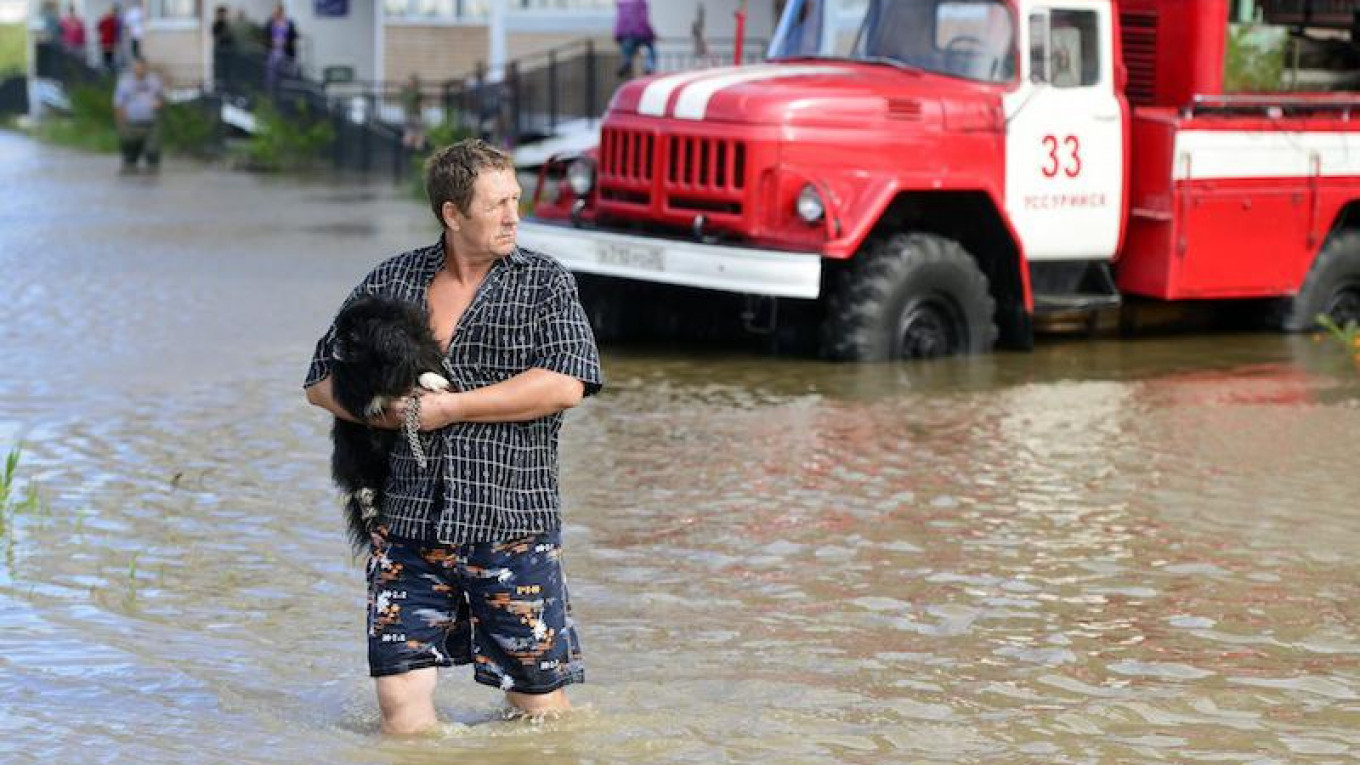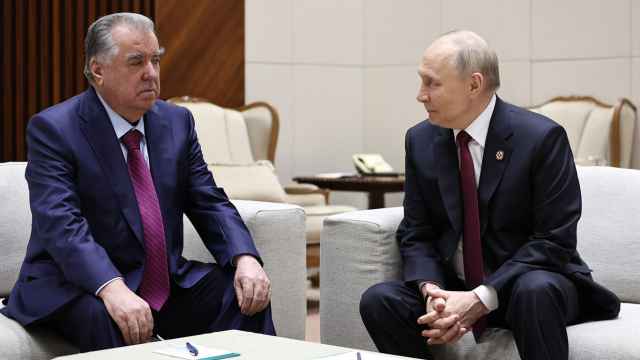Typhoon Lionrock, which slammed into Russia's Primorye Region on Aug. 29, was the area's most destructive storm in 40 years, according to officials. Lionrock is estimated to have caused twice as much damage as Typhoon Judy, which hit Primorye in 1989. Lionrock flooded more than 3,260 homes, 13 municipal buildings, and approximately 30.5 km of roads. At least 19 populated areas still have no communication lines with the outside world, 51 towns are still without power, and roughly a thousand people have been evacuated from flooded areas. Oleg Fediura, the head of the regional branch of the Emergency Situations Ministry, even drowned while trying to rescue people on Friday, Sept. 2.
On Instagram, locals in Primorye have been sharing stunning images and videos from on the ground. The Moscow Times shares some of the most remarkable footage.
On Sept. 4, the newspaper Novaya Gazeta reported that Emergency Situations Minister Vladimir Puchkov might lose his job, in light of the government's systematic underestimation of forest fires, the death of five rescue workers in a coal mine explosion in February, the crash of a firefighting plane in the Irkutsk region in July, and most recently Oleg Fediura's drowning in Primorye. The Kremlin's spokesman, Dmitry Peskov, quickly dismissed rumors about Puchkov's ouster as “speculation.”
On Sept. 5, the Emergency Situations Ministry dispatched another 250 rescue workers to Primorye, pulling cadets and staff from Krasnoyarsk and Moscow. “They are coming equipped with the required watercraft and gear to carry out the necessary work,” a government spokesperson told the news agency TASS.
Typhoon Lionrock drenched the region in heavy rains for three days, from Aug. 29 to Aug. 31. In those days, rainfall approached what the region usually gets in three months. Because of flooding, the region has been declared a disaster area.
Meanwhile, a new storm is now drenching Primorye, and more flooding is expected in areas near rivers throughout the region. Heavy rains are forecast to last until Sept. 6.
Russia's federal government is reportedly considering sending 718 million rubles ($11 million) in aid to help the Primorye region recover from the typhoon's damage. Prime Minister Dmitry Medvedev told reporters on Sept. 5 that officials are currently focused on minimizing the effects of the storm and organizing assistance to the victims as quickly as possible.
According to the news agency TASS, emergency officials have received several complaints from locals in flooded areas claiming that stores have suddenly raised prices on basic foods, including bread. There have been reports of profiteering in nearly a dozen towns. The region's governor, Vladimir Miklushevsky, has vowed to prosecute businesses for such practices.
According to Anatoly Tsygankov, the deputy director of the Situation Center at Russia's Federal Service for Hydrometeorology and Environmental Monitoring, the country hasn't yet “learned to hide” from major storms. Tsygankov says officials in the U.S., for instance, have built bunkers to protect people from flooding. “We cannot counter heavy rainfall: we cannot redirect it to the side, and it is impossible to hide from heavy rains,” he says.
A Message from The Moscow Times:
Dear readers,
We are facing unprecedented challenges. Russia's Prosecutor General's Office has designated The Moscow Times as an "undesirable" organization, criminalizing our work and putting our staff at risk of prosecution. This follows our earlier unjust labeling as a "foreign agent."
These actions are direct attempts to silence independent journalism in Russia. The authorities claim our work "discredits the decisions of the Russian leadership." We see things differently: we strive to provide accurate, unbiased reporting on Russia.
We, the journalists of The Moscow Times, refuse to be silenced. But to continue our work, we need your help.
Your support, no matter how small, makes a world of difference. If you can, please support us monthly starting from just $2. It's quick to set up, and every contribution makes a significant impact.
By supporting The Moscow Times, you're defending open, independent journalism in the face of repression. Thank you for standing with us.
Remind me later.






